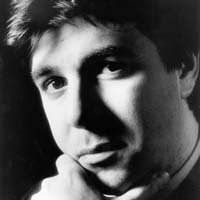S & H Concert Review
Gatti Beethoven Cycle, Freddy Kempf (piano), Royal Philharmonic Orchestra, Daniele Gatti, 4th May, 2003 RFH (AR)
Both the classical CD catalogue and concert hall programmes are replete with Beethoven symphony cycles, so one tends to greet yet another one with a mixture of apprehension and resignation, wearily and warily.
However, Daniele Gatti and the Royal Philharmonic Orchestra gave readings of Beethoven that were both invigorating and awe-inspiring; this was not just another run through of Beethoven’s over played scores. Gatti stated in an interview in the programme notes "In the light of the new critical edition of the symphonies, edited by Jonathan Del Mar, it has become especially important to reconsider the metronome marks, phrasing, articulation and so on, and to look again at how much the way Beethoven is played is simply the result of tradition. Our approach is to bring, if you like, the best of both worlds." As a result Gatti’s Beethoven is authoritative, muscular and brimming with energy, sounding newly minted.The concert opened with a spacious performance of the Leonore No.3 Overture. Gatti brought intense drama to the opening passages, sustaining a measured pace and producing delicately restrained playing from the strings. This reserved opening contrasted well with the drama of the developing sections where the RPO gradually built up the tension and drama, with the string section assuming razor sharpness.
Freddy Kempf brought vigour and dynamism to his playing of Beethoven’s Piano Concerto No 3. Kempf launched into the opening bars, appearing literally to take flight. He is interesting to watch, having great magnetism, and hands that move at lightening speed, playing with vivacity and awesome attack, and making the music sound uncannily modern yet remaining true to Beethoven’s intentions. Indeed, the opening movement sounded as if it was being improvised, especially the cadenza, which had the flavour of a jazz riff. As he says, "…I try to bring a feeling of fresh discovery to every performance."The Largo had an extreme dynamic range played with more force and weight than is usually heard, whilst the closing passages had a fragmentary quality, almost coming to a halt, so concentrated was his playing; again Kempf’s spontaneity gave the impression of playing extempore. In the Allegro Kempf shifted mood, playing with an agile lightness of touch, his hands floating with an assured ease. Throughout his playing Kempf kept a keen eye on conductor and players, always in total accord with them, while Gatti and RPO responded with expressive and sensitive support.
The RPO played with even greater intensity and energy in Beethoven’s Seventh Symphony. Gatti maintained the tempi of the opening passages to perfection, building up a great sense of expectation and tension. There was something wonderfully animalistic and raw about the conductor’s hard driven and rhythmically vital approach. The antithesis of Karajan and Guilini, Gatti elicited deep grained, jagged and angular textures and rhythms more akin to Klemperer’s sound. What was so refreshing was the rugged and gutsy playing of the RPO that gave this movement (indeed, the whole symphony) such a cutting edge.
The Allegretto was conducted with great eloquence and buoyancy never dragging as it sometimes can, the playing of the strings being especially delicate and hushed in the reflective moments. The Presto was vigorously paced with Gatti producing great dance rhythms reminding one of Wagner’s statement that "This symphony is the very apotheosis of the dance."
The Allegro is arguably the most difficult movement to conduct in this symphony with its complex dynamics and multi-layered rhythms but Gatti pulled it off effortlessly, being in perfect control of his forces. Here he turned up the tension getting an even more intense grainy sound and taut rhythms, with thrusting horns and swirling strings. As we progressed towards the closing passages, Gatti inexorably piled on the pressure; it gave the illusion of unleashing a force of nature, giving the music the power of a tornado.
Gatti’s Beethoven cycle, with the same soloist and orchestra, continues on May 13th, June 1st and June 3rd. On the strength of this showing, they are not to be missed.
Alex Russell


 Return to:
Return to: